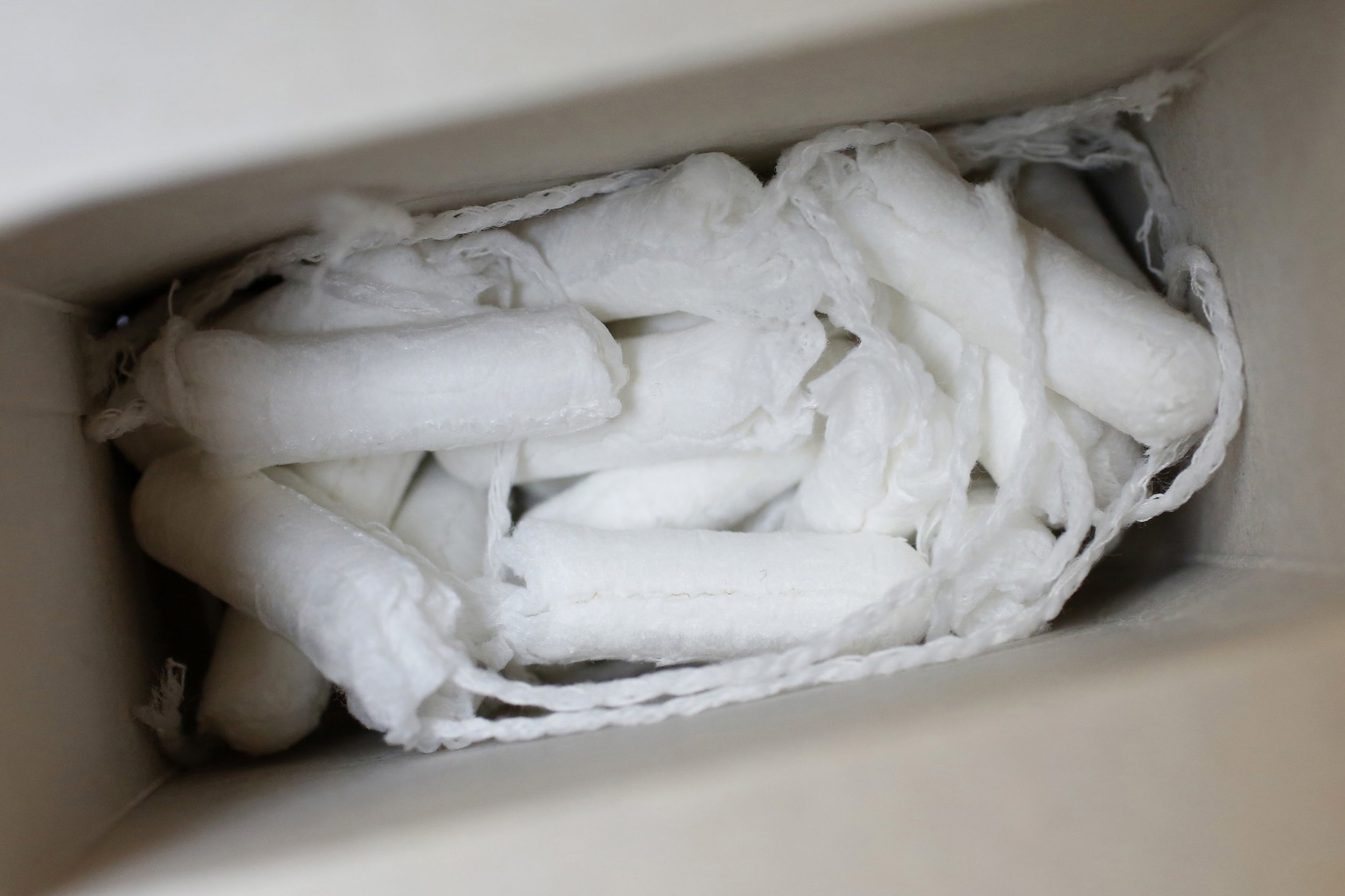
In recent years, some consumers and women's health advocates have started to question whether tampons are completely safe, due to their associated risk for toxic shock syndrome (TSS), a rare but life-threatening infection of Staphylococcus aureus bacteria that enters the bloodstream.
But a group of researchers may soon have a solution to assuage the anxiety of tampon users. Scientists in Vienna say they've developed the world's first vaccine against TSS. Results from a small Phase I clinical trial on 46 patients, published June 10 in the Lancet Infectious Diseases, determined the vaccine candidate is effective, safe and doesn't cause any adverse side effects. MedUni Vienna's department of clinical pharmacology, in collaboration with the company Biomedizinische Forschungsgesellschaft mbH, used a detoxified form of Staphylococcus to formulate the vaccine, which causes the immune system to produce antibodies that are activated if a person becomes infected with the bacteria.
TSS is an opportunistic infection that typically affects people with weakened immune systems, dialysis patients and patients recovering from certain surgeries. In addition, a link between TSS and tampons has been relatively well known since October 1979, when the U.S. Centers for Disease Control and Prevention (CDC) received reports of 55 cases of TSS—and found out 52 of these cases were in women, and 38 reported falling ill not long after starting their monthly period. A follow-up report in June 1980 detailed three case studies highlighting a link between tampon use and TSS, especially those labeled as "super absorbent." In 1980, 772 women reported menstrual TSS, and 38 of them died.
As a result, that year, the U.S. Food and Drug Administration recategorized tampons (and their bulky sisters, sanitary napkins) from a "cosmetic product" to Class II medical devices. Practically, that means tampon manufacturers have to adhere to "special controls" to ensure their product is safe. The classification means tampons are considered by the FDA to be more dangerous than, say, compression hosiery, but not nearly as risky as hip replacement implants, for example.
TSS isn't that common, affecting only about 1 in 100,000 women in the U.S. each year, but reports of young women developing an infection after using high-absorbency tampons often make the news. In late January 2016, health officials from the CDC and Kent County, Michigan, launched an investigation when three teens developed TSS, all of whom had used super-absorbent tampons. And a number of other reports have raised the public's concern, including the story of a fashion model who lost her leg as a result of menstrual-related TSS and filed a lawsuit against Kotex, which makes the brand of tampons she used.
Some experts say most tampons aren't inherently dangerous—and that TSS in young women is primarily caused by tampon misuse. "Women who develop TSS are more likely to have used tampons with high absorbency, used tampons continuously for more days of their cycle and keep a single tampon in place for a longer period of time," says Dr. Mamta Mamik, assistant professor of obstetrics, gynecology and reproductive science at the Icahn School of Medicine at Mount Sinai in New York City.
This means a tampon user's best defense against TSS is to use the product correctly. This includes alternating between tampons and sanitary napkins, and using no more than one at a time and only to absorb menstrual flow, says Mamik. It's also important to use a regular- to low-absorbency tampon and change it frequently (every four to six hours).
Over the years, many have questioned the safety of tampons marketed to women who believe they have a heavier menstrual flow. As early as 1982, a panel of leading scientists recommended women avoid high-absorbency tampons due to their associated risk of TSS. This recommendation came after one brand of tampons, Rely, was pulled off the market because the product contained polyester foam and a chemical known as carboxymethylcellulose that appeared to cause bacterial overgrowth. Tampons are no longer made from these materials.
Still, the FDA didn't remove all super-absorbency tampons from the market. Instead, federal health officials enacted regulations preventing companies from making tampons capable of absorbing over 15 grams of liquid. (Rely tampons were capable of absorbing more.)
Companies were also required to include clear information that explained the differences in absorbency and a warning on every single tampon box clearly stating the risk for TSS.
Today, companies use higher-tech fibers such as rayon for these higher-absorbency tampons—but they too appear to create an environment in which S. aureus bacteria thrive, when worn too long. And, as experts point out, oftentimes women who use high-absorbency tampons will wear them for a longer duration of time.
Regardless, a TSS vaccine could help women feel even more secure. The researchers say a Phase II trial with a larger test population is now underway. The Phase II trial would need to be successful for the vaccine to be approved. If the vaccine makes it to the market, then patients would need to go for the shot every five years, a follow-up schedule similar to that used for the tetanus vaccine.
Uncommon Knowledge
Newsweek is committed to challenging conventional wisdom and finding connections in the search for common ground.
Newsweek is committed to challenging conventional wisdom and finding connections in the search for common ground.
About the writer
Jessica Firger is a staff writer at Newsweek, where she covers all things health. She previously worked as a health editor ... Read more
To read how Newsweek uses AI as a newsroom tool, Click here.








